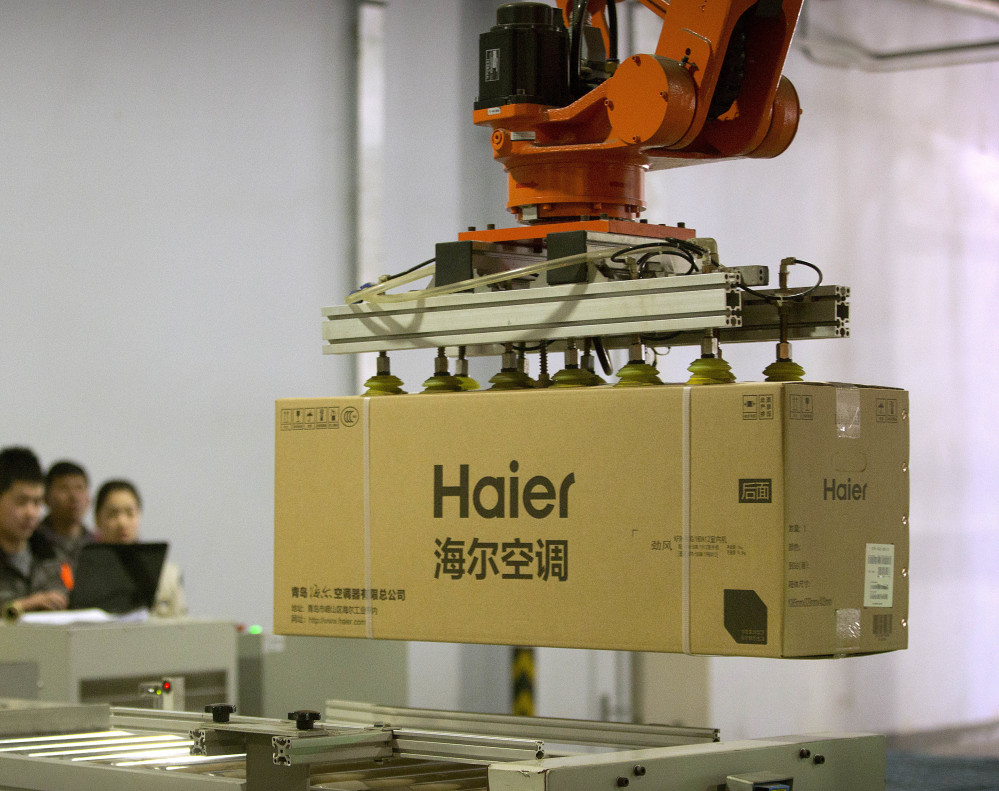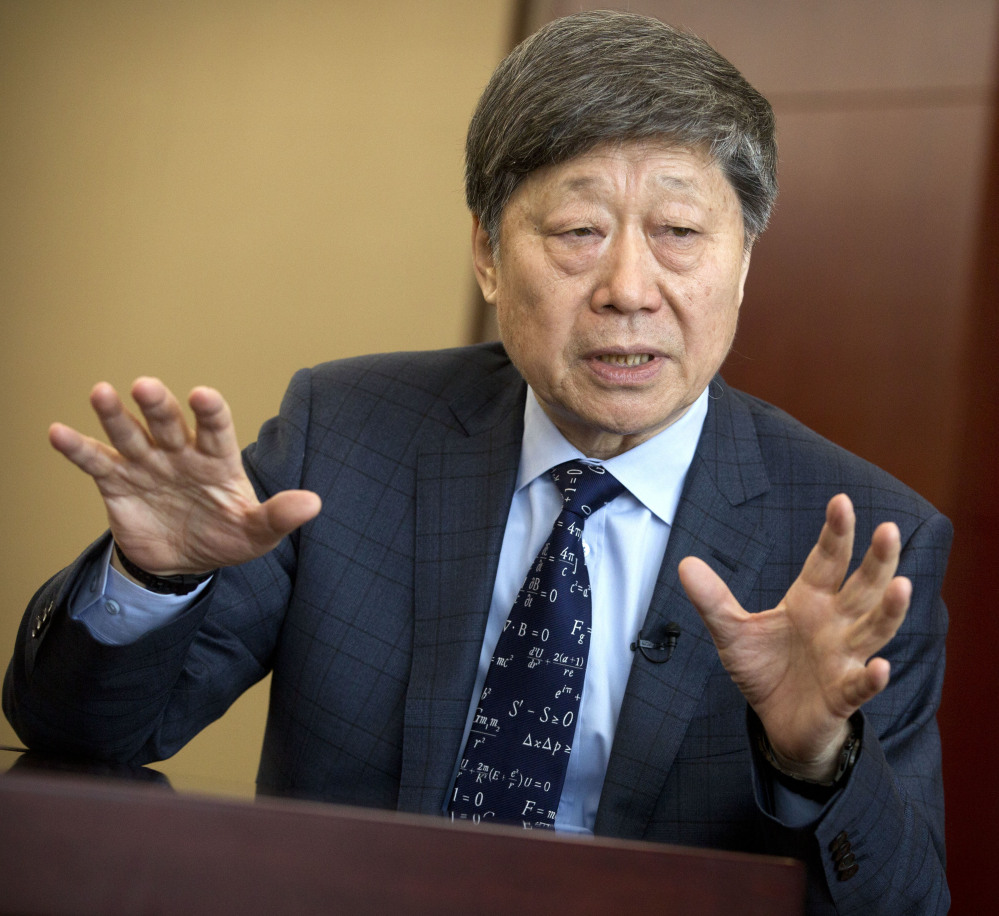QINGDAO, China — After Haier Group bought the General Electric Co. appliance unit last year, the Chinese company’s chairman says he gave its American managers unusual orders: Ignore me.
Zhang Ruimin built Haier from a failing refrigerator factory in the 1980s into the biggest maker of major appliances. Now he is trying to transform a traditional manufacturer with 60,000 employees in 25 countries into a nimble, Internet Age seller of consumer goods and services, from web-linked washing machines to food delivery.
To do that, Zhang has broken up Haier into a “networked company” of hundreds of independent business units with orders to act like customer-focused startups. He says GE Appliances will be given almost total autonomy.
“One of their senior managers asked, ‘How are you going to control us?’ ” Zhang said in an interview at Haier headquarters in this eastern Chinese city. “I said, ‘I’m not your boss. I’m not your leader. The leader is one person: The user.’ “
Zhang, who at 68 is still on the job a decade after many Chinese CEOs have retired, is leading Haier through radical changes to compete in a fast-evolving global market – changes that now include GE Appliances and its 12,000 employees, most of them in the United States.
TRENDING MANAGEMENT PHILOSOPHY
Haier’s approach is a high-profile example of a wave of management experiments by Chinese companies as they expand into global markets.
The founder of e-commerce giant Alibaba Group, Jack Ma, announced plans in 2013 to split it into 25 divisions to revive the innovative spirit of its startup days. After buying Volvo Cars in 2012, automaker Geely Holdings left Swedish managers to run the company while they also cooperate on developing cars its Chinese brands might export.
Companies that grew rapidly during China’s boom of the past decade also are spending heavily to invent or buy technology to improve their competitive edge as the Chinese economy cools.
Midea Group, another Chinese appliance maker, bought one of the leading manufacturers of industrial robots, Germany’s Kuka, last year.
Haier’s link-up with GE Appliances should help both companies, said Dinesh Kithany, the chief appliance industry analyst for IHS Markit. Haier gets GE technology while the American brand gets access to Haier’s distribution network to expand its global presence and can learn from faster-paced Chinese product development.
“GE Appliances is a perfect decision for them,” said Kithany.
Zhang launched his overhaul of Haier in 2005, splitting structures with thousands of employees into units sometimes as small as a few dozen people to focus on a single appliance or service.
Headquarters acts like a venture capital investor: Employees propose new businesses and, if Zhang and other executives like them, receive financial backing. They have to hit financial targets but are left to manage the venture.
That network has expanded to include ventures launched with outside entrepreneurs who get money and other support from Haier.
“We don’t want just to produce products,” said Zhang. “We want to produce creators.”
In person, Zhang is amiable and quiet. With bushy, salt-and-pepper hair, he seems more like a popular high school teacher than one of Asia’s most acclaimed executives – a striking contrast to some of the forceful egos of the Chinese business world. He chuckles and shrugs as he talks about challenges that Haier faces.
At GE Appliances, no managers from China moved in after the $5.4 billion acquisition closed in June. The only public change was three words added to the bottom of the U.S. brand’s website: “A Haier Company.”
Haier took a similar approach at Fisher & Paykel, a New Zealand appliance brand acquired in 2012.
TRUST IN EMPLOYEE LEADERSHIP
Haier has tried to speed up product development by using the internet to ask potential customers for suggestions and feedback, an approach taken by Chinese smartphone brands. The company says a new appliance can go from drawing board to market in as little as one year, down from more than three years.
Zhang’s management changes “are more impressive than we see anywhere,” said William A. Fischer, a professor at the IMD business school in Switzerland who has followed the company for a decade. He co-wrote the 2013 book “Reinventing Giants: How Chinese Global Competitor Haier Has Changed the Way Big Companies Transform.”
“He trusts his employees to play more of a leadership role,” Fischer said.
He said a group of European executives he took to Haier headquarters two years ago refused to believe its decentralized style could work.
“I was struck by how daring Haier was in their thinking. And the people I was working with were hostages to very traditional ways of working,” said Fischer.
“Once I am sure this process is a success, then I can retire,” Zhang said.
Send questions/comments to the editors.




Success. Please wait for the page to reload. If the page does not reload within 5 seconds, please refresh the page.
Enter your email and password to access comments.
Hi, to comment on stories you must . This profile is in addition to your subscription and website login.
Already have a commenting profile? .
Invalid username/password.
Please check your email to confirm and complete your registration.
Only subscribers are eligible to post comments. Please subscribe or login first for digital access. Here’s why.
Use the form below to reset your password. When you've submitted your account email, we will send an email with a reset code.